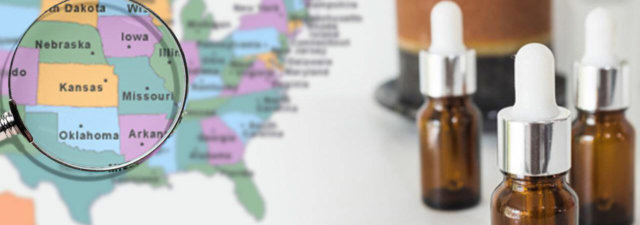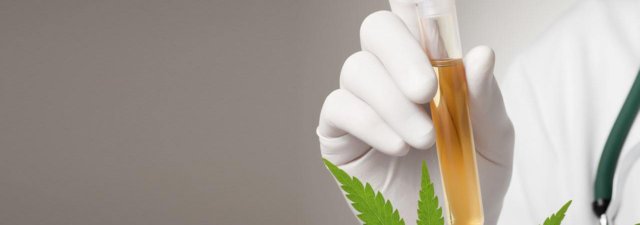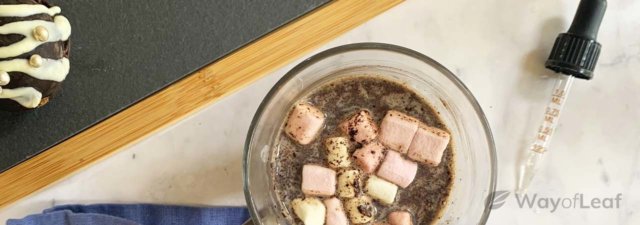
All the answers in one post


![CBD Oil in Indiana [Your Up-to-Date Buyer’s Guide]](https://wayofleaf.co/wp-content/uploads/2018/09/wol_1920x450-96-640x225.jpg)
![What States Is Medical Marijuana NOT Legal In? [Answered]](https://wayofleaf.co/wp-content/uploads/2018/09/mj_what-states-is-medical-marijuana-not-legal-in-answered_1920-640x225.jpg)


![CBD Oil in Wisconsin [Your Exclusive Guide to Purchasing CBD]](https://wayofleaf.co/wp-content/uploads/2019/01/wol_cbd-in-wisconsin_1920x450-640x225.jpg)

![CBD Bath Bombs [What They Are and How to Use Them]](https://wayofleaf.co/wp-content/uploads/2019/04/wol_1920x450-37-640x225.jpg)
![CBD Oil in Florida [Legalities and Where to Buy It]](https://wayofleaf.co/wp-content/uploads/2019/04/mj_cbd-oil-in-florida-legalities-and-where-to-buy_1920-640x225.jpg)
![The Top 5 Best Glass Bong Brands of 2024 [Full Review]](https://wayofleaf.co/wp-content/uploads/2019/04/wol_1920x450-2-640x225.jpg)
The best glass bongs for sale

Why you NEED to avoid these fakes


All you need to know and more
![How to Calculate THC Content for Edibles [Explained]](https://wayofleaf.co/wp-content/uploads/2020/12/wol-bannerhow-to-calculate-thc-content-for-edibles-640x225.jpg)

Delta 8 THC is a marijuana and hemp compound that has similarities with delta 9 THC. Delta 9 is famed for causing an intoxicating high and is available in abundance in most cannabis strains. Although delta 8 can also result in a high, it is approximately half as potent as D9. Also, both hemp and […]
![17 Conditions CBD Oil Might Help With [NEW Studies!]](https://wayofleaf.co/wp-content/uploads/2019/03/wol_1920x450-16-640x225.jpg)

Two inseparable parts of cannabis

Tips on finding the highest-quality CBD tinctures and ingredients.
![Failed a Drug Test After Taking CBD Oil? [Here’s Why…]](https://wayofleaf.co/wp-content/uploads/2019/06/mj_cbd-oil-on-drug-tests-640x225.jpg)
The answer will surprise you
![Failed a Drug Test After Taking CBD Oil? [Here’s Why…]](https://wayofleaf.co/wp-content/uploads/2019/06/mj_cbd-oil-on-drug-tests-640x225.jpg)
The answer will surprise you

It's not as straightforward as you think!


![How Long Does Marijuana Stay in Your System? [Fully Explained]](https://wayofleaf.co/wp-content/uploads/2019/06/how-long-does-weed-stay-in-your-system-640x225.jpg)
The comprehensive guide



All the answers in one post

All you need to know and more
![How to Calculate THC Content for Edibles [Explained]](https://wayofleaf.co/wp-content/uploads/2020/12/wol-bannerhow-to-calculate-thc-content-for-edibles-640x225.jpg)

Tips on finding the highest-quality CBD tinctures and ingredients.
![How to Determine Which CBD Oil Potency Fits You [BEGINNERS GUIDE]](https://wayofleaf.co/wp-content/uploads/2019/03/wol_which-cbd-oil-potency-fits-you_1920x450-640x225.jpg)
Understanding what you need.
![How to Read CBD Third Party Lab Reports [Simply Explained…]](https://wayofleaf.co/wp-content/uploads/2019/05/wol_1920x450-13-640x225.jpg)

![How Many Different Types of Cannabis Are There? [Answered]](https://wayofleaf.co/wp-content/uploads/2019/05/mj_different-kinds-of-marijuana-640x225.jpg)

![CBD Oil Third Party Quality Testing [Essentials]](https://wayofleaf.co/wp-content/uploads/2019/03/wol_1920x450-61-640x225.jpg)


Is weed really stronger now than 50 years ago?

Things you probably didn’t know about cannabis
![How to Prevent Developing a Cannabis Tolerance [Must-Know Trick]](https://wayofleaf.co/wp-content/uploads/2018/01/wol_reduce-marijuana-tolerance_1920x450-640x225.jpg)
If you smoke on a daily basis, then this article is for you...
![How Long Does It Take for CBD Oil to Work? [The ANSWER!]](https://wayofleaf.co/wp-content/uploads/2019/05/how-long-does-it-take-cbd-oil-to-work-640x225.jpg)


How about a career in the cannabis industry?
![How Many Grams Are in an Ounce of Marijuana? [Exact Answer]](https://wayofleaf.co/wp-content/uploads/2019/03/wol-banner-how-many-grams-in-an-ounce-640x225.jpg)
![Why Do Some People Handle Weed Better Than Others? [Explained]](https://wayofleaf.co/wp-content/uploads/2019/11/why_do_some_people_handle_weed_better_than_others-min-640x225.jpg)
Why some people get higher than others
![CBD Oil in Indiana [Your Up-to-Date Buyer’s Guide]](https://wayofleaf.co/wp-content/uploads/2018/09/wol_1920x450-96-640x225.jpg)
![What States Is Medical Marijuana NOT Legal In? [Answered]](https://wayofleaf.co/wp-content/uploads/2018/09/mj_what-states-is-medical-marijuana-not-legal-in-answered_1920-640x225.jpg)

![CBD Oil in Wisconsin [Your Exclusive Guide to Purchasing CBD]](https://wayofleaf.co/wp-content/uploads/2019/01/wol_cbd-in-wisconsin_1920x450-640x225.jpg)

![CBD Oil in Florida [Legalities and Where to Buy It]](https://wayofleaf.co/wp-content/uploads/2019/04/mj_cbd-oil-in-florida-legalities-and-where-to-buy_1920-640x225.jpg)


Delta 8 THC is a marijuana and hemp compound that has similarities with delta 9 THC. Delta 9 is famed for causing an intoxicating high and is available in abundance in most cannabis strains. Although delta 8 can also result in a high, it is approximately half as potent as D9. Also, both hemp and […]





![The Top 5 Best Glass Bong Brands of 2024 [Full Review]](https://wayofleaf.co/wp-content/uploads/2019/04/wol_1920x450-2-640x225.jpg)
The best glass bongs for sale

Why you NEED to avoid these fakes

Who Is WayofLeaf? WayofLeaf is one of the world’s most established resources for information on cannabis health and wellness. Over the generations, cannabis has developed a reputation based mostly on the ‘stoner stereotype.’ The reality is, cannabis is far more than a plant to smoke to get high and eat a bunch of junk food. […]

Taking recycling to the next level!

![How to be Confident While High [Tips from the Pros]](https://wayofleaf.co/wp-content/uploads/2019/09/wol-banner-how-to-be-confident-while-high-640x225.jpg)

Find out which one is the best for you!


![How Long Do Disposable Vape Pens Last? [The TRUTH Revealed]](https://wayofleaf.co/wp-content/uploads/2019/05/wol-banner-disposable-vape-pens-640x225.jpg)
The answer is not that simple, and here's why...


You may be surprised by some of them!

The complete guide to this new type of product

You might be surprised how much things have changed!


![How to Ask a Friend for Weed [Text, Call, and More!]](https://wayofleaf.co/wp-content/uploads/2020/06/wol_how_to_ask_a_friend_for_weed_1920x450-640x225.jpg)
How to bring up the subject of cannabis
![Cannabis Will Cause Bad Breath, Unless… [Tips and Tricks]](https://wayofleaf.co/wp-content/uploads/2019/08/mj_marijuana-will-cause-bad-breath-unless-640x225.jpg)
Ways to prevent marijuana bad breath
![How to Make a Cheap Ass Bong [And Get REALLY High…]](https://wayofleaf.co/wp-content/uploads/2019/03/wol_how-to-make-a-cheap-ass-bong-640x225.jpg)


This will change the way you look at kief forever!
![Can Eating Food Reduce Your High? [Exploring the TRUTH!]](https://wayofleaf.co/wp-content/uploads/2019/03/wol-banner-food-reduces-your-high-640x225.jpg)
We take a closer look at the science of marijuana and food


![CBD Bath Bombs [What They Are and How to Use Them]](https://wayofleaf.co/wp-content/uploads/2019/04/wol_1920x450-37-640x225.jpg)
![What Are Cannabis Cones? [The Comprehensive Review]](https://wayofleaf.co/wp-content/uploads/2019/04/wol_what-are-cannabis-cones-640x225.jpg)

Get the most out of your massage

![What Is CBD Chocolate? [We Answer All Your Questions]](https://wayofleaf.co/wp-content/uploads/2019/11/what_is_cbd_chocolate-min-640x225.jpg)

All the information you need in one place
![What Is a 99.9% THC Dab [And Just How High Can It Get You?]](https://wayofleaf.co/wp-content/uploads/2019/06/wol_what-is-a-99-9-thc-dab-640x225.jpg)
Would you dare give them a try?
![Moon Rocks: What Are They and How Do You Smoke Them? [Answered]](https://wayofleaf.co/wp-content/uploads/2018/06/mj_moon-rocks_1920-640x225.jpg)

How does this consumption method work?


Everything you need to know about this popular concentrate

![Kief; All You Could Want to Know [And More]](https://wayofleaf.co/wp-content/uploads/2017/04/mj_what-is-kief_1920-1-640x225.jpg)


History, origins, and how to make your own!

For when a regular bath just isn't relaxing enough

is CBD Hot Chocolate Bombs: The Lowdown There is little better in life than curling up on the couch with a mug of hot cocoa. We have made it better, though, with these CBD-infused hot chocolate bombs. They’re a really awesome way to enjoy CBD hot chocolate, complete with mini marshmallows and sprinkles. You may […]

Kickstart Your Day With This CBD Smoothie There are all sorts of food you can enjoy for breakfast. However, sugary cereals and simple toast don’t tend to be all that nutritious. And if you stick to a protein-rich breakfast like eggs and bacon, you’re likely to feel too full to work out and possibly weighed […]

The perfect snack for your movie night in


The ultimate treat for you and your partner
![Canna Lemon Drizzle Cake [How-To Make This Infused Dessert]](https://wayofleaf.co/wp-content/uploads/2020/07/wol_canna-lemon-drizzle-cake-how-to-make-this-infused-dessert_1920x450-640x225.jpg)

![Marijuana Spaghetti Bolognese [How to Prepare This Recipe]](https://wayofleaf.co/wp-content/uploads/2020/09/wol_a-recipe-for-cannabis-infused-spaghetti-bolognese-640x225.jpg)

Everyone’s favorite, now with added Cannabis!
![Cannabis Peanut Butter Bites [Learn How They’re Made!]](https://wayofleaf.co/wp-content/uploads/2019/05/mj_cannabis-peanut-butter-bites_1920-640x225.jpg)



These delicious recipes really pack a punch!

Savory noodles with dankest medical marijuana
![5 Weed-Infused Hot Chocolate Recipes [YUM]](https://wayofleaf.co/wp-content/uploads/2019/03/mj_cannabis-hot-chocolate-recipes_1920-640x225.jpg)
A tempting twist on an all-time classic beverage

![17 Conditions CBD Oil Might Help With [NEW Studies!]](https://wayofleaf.co/wp-content/uploads/2019/03/wol_1920x450-16-640x225.jpg)

Two inseparable parts of cannabis

![Do Terpenes Get You High? [Understand the Facts!]](https://wayofleaf.co/wp-content/uploads/2019/08/mj_do_terpenes_get_you_high_1920-min-640x225.jpg)



![Can CBD Oil Be Taken with Ibuprofen? [What the Science Says]](https://wayofleaf.co/wp-content/uploads/2020/08/wol_can-cbd-oil-be-taken-with-ibuprofen-1-640x225.jpg)

Is this the most powerful cannabinoid of all?


![Why Does Marijuana Make Your Heart Race? [The Science Behind]](https://wayofleaf.co/wp-content/uploads/2019/10/wol_why-does-marijuana-make-your-heart-race-640x225.jpg)
Racing heart after smoking weed? Here's why...

How do landrace strains differ from regular weed?
![Top 10 Cannabinoids: What Are They and What Do They Do? [GUIDE]](https://wayofleaf.co/wp-content/uploads/2018/09/wol_top-cannabinoids-and-what-they-do-640x225.jpg)

![Does Cannabis Affect Women Differently to Men? [ANSWERED]](https://wayofleaf.co/wp-content/uploads/2018/09/mj_does-marijuana-affect-women-differently-to-men-answered-640x225.jpg)
It's amazing how much of a difference one plant can have on the different genders


![Medical Cannabis Vs. Morphine [The Difference]](https://wayofleaf.co/wp-content/uploads/2018/11/mj_medical-cannabis-versus-morphine-640x225.jpg)
Everything you need to know about medical marijuana vs. morphine

 © 2000 - 2024 All Rights Reserved Digital Millennium Copyright Act Services Ltd. | DMCA.com
© 2000 - 2024 All Rights Reserved Digital Millennium Copyright Act Services Ltd. | DMCA.comWayofLeaf use cookies to ensure that we give you the best experience on our website. If you continue to use this site we will assume that you are happy with it. More Information